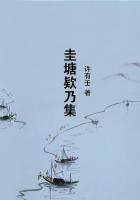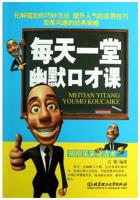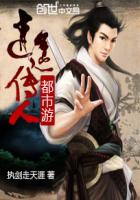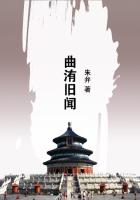1. "In the summer of 1852 I started on horseback from Albany, King George's Sound, to visit at Cape Riche, accompanied by a native on foot. We traveled about forty miles the first day, then camped by a water-hole for the night. After cooking and eating our supper, Iobserved the native, who had said nothing to me on the subject, collect the hot embers of the fire together, and deliberately place his right foot in the glowing mass for a moment, then suddenly withdraw it, stamping on the ground and uttering a long-drawn guttural sound of mingled pain and satisfaction. This operation he repeated several times. On my inquiring the meaning of his strange conduct, he only said, 'Me carpenter-make 'em' ('I am mending my foot'), and then showed me his charred great toe, the nail of which had been torn off by a tea-tree stump, in which it had been caught during the journey, and the pain of which he had borne with stoical composure until the evening, when he had an opportunity of cauterizing the wound in the primitive manner above described."And he proceeded on the journey the next day, "as if nothing had happened"--and walked thirty miles. It was a strange idea, to keep a surgeon and then do his own surgery.
2. "A native about twenty-five years of age once applied to me, as a doctor, to extract the wooden barb of a spear, which, during a fight in the bush some four months previously, had entered his chest, just missing the heart, and penetrated the viscera to a considerable depth. The spear had been cut off, leaving the barb behind, which continued to force its way by muscular action gradually toward the back; and when I examined him I could feel a hard substance between the ribs below the left blade-bone. I made a deep incision, and with a pair of forceps extracted the barb, which was made, as usual, of hard wood about four inches long and from half an inch to an inch thick. It was very smooth, and partly digested, so to speak, by the maceration to which it had been exposed during its four months' journey through the body. The wound made by the spear had long since healed, leaving only a small cicatrix; and after the operation, which the native bore without flinching, he appeared to suffer no pain. Indeed, judging from his good state of health, the presence of the foreign matter did not materially annoy him. He was perfectly well in a few days."But No. 3 is my favorite. Whenever I read it I seem to enjoy all that the patient enjoyed--whatever it was:
3. "Once at King George's Sound a native presented himself to me with one leg only, and requested me to supply him with a wooden leg.
He had traveled in this maimed state about ninety-six miles, for this purpose. I examined the limb, which had been severed just below the knee, and found that it had been charred by fire, while about two inches of the partially calcined bone protruded through the flesh. I at once removed this with the saw; and having made as presentable a stump of it as I could, covered the amputated end of the bone with a surrounding of muscle, and kept the patient a few days under my care to allow the wound to heal. On inquiring, the native told me that in a fight with other black-fellows a spear had struck his leg and penetrated the bone below the knee. Finding it was serious, he had recourse to the following crude and barbarous operation, which it appears is not uncommon among these people in their native state. He made a fire, and dug a hole in the earth only sufficiently large to admit his leg, and deep enough to allow the wounded part to be on a level with the surface of the ground.
He then surrounded the limb with the live coals or charcoal, which was replenished until the leg was literally burnt off. The cauterization thus applied completely checked the hemorrhage, and he was able in a day or two to hobble down to the Sound, with the aid of a long stout stick, although he was more than a week on the road."But he was a fastidious native. He soon discarded the wooden leg made for him by the doctor, because "it had no feeling in it." It must have had as much as the one he burnt off, I should think.
So much for the Aboriginals. It is difficult for me to let them alone.
They are marvelously interesting creatures. For a quarter of a century, now, the several colonial governments have housed their remnants in comfortable stations, and fed them well and taken good care of them in every way. If I had found this out while I was in Australia I could have seen some of those people--but I didn't. I would walk thirty miles to see a stuffed one.
Australia has a slang of its own. This is a matter of course. The vast cattle and sheep industries, the strange aspects of the country, and the strange native animals, brute and human, are matters which would naturally breed a local slang. I have notes of this slang somewhere, but at the moment I can call to mind only a few of the words and phrases.
They are expressive ones. The wide, sterile, unpeopled deserts have created eloquent phrases like "No Man's Land " and the "Never-never Country." Also this felicitous form: "She lives in the Never-never Country"--that is, she is an old maid. And this one is not without merit: "heifer-paddock"--young ladies' seminary. "Bail up" and "stick up" equivalent of our highwayman-term to "hold up" a stage-coach or a train. "New-chum" is the equivalent of our "tenderfoot"--new arrival.
And then there is the immortal "My word! "We must import it. "M-y word!
"In cold print it is the equivalent of our "Ger-rreat Caesar!" but spoken with the proper Australian unction and fervency, it is worth six of it for grace and charm and expressiveness. Our form is rude and explosive;it is not suited to the drawing-room or the heifer-paddock; but "M-y word!" is, and is music to the ear, too, when the utterer knows how to say it. I saw it in print several times on the Pacific Ocean, but it struck me coldly, it aroused no sympathy. That was because it was the dead corpse of the thing, the 'soul was not there--the tones were lacking--the informing spirit--the deep feeling--the eloquence. But the first time I heard an Australian say it, it was positively thrilling.

